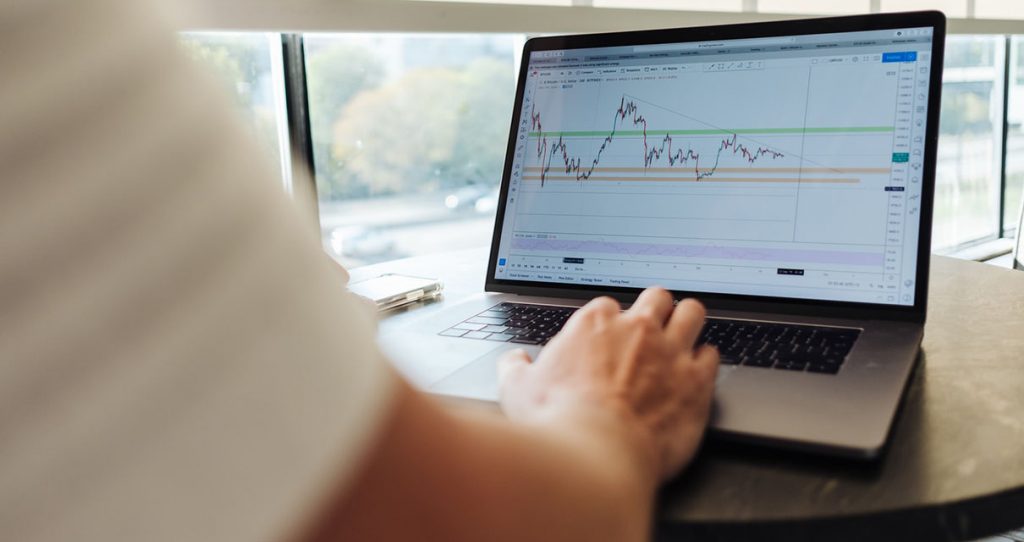Whether you make it as a trader or not isn’t a matter of luck or circumstance. It’s a matter of skill and dedication. How committed are you to perfecting your skills? Are you dedicated enough to take on the harsh markets and adopt the proper habits and behaviors that will help you succeed?
The truth is, it’s your habits that can make or break your trading career – not your competitors or outside influences.
Nothing can deplete your account faster than lousy trading habits. Disregarding your trading plan once and having it turn out well or taking an unnecessary risk and having it pay off can often do more harm than good in the long run. Unfortunately, it doesn’t take much to get used to such routines and behaviors that seem inconsequential yet harm your chances of success as a trader, especially when they occasionally yield good results.
If you want to increase your profitability over time, you need to steer clear of the bad habits that can harm your career. So let’s see what those are.
Turning your back on your trading plan

Operating without a robust trading plan is a recipe for disaster, but so is turning your back on a plan that you’ve spent so long perfecting. Unfortunately, many novice traders get into this precise habit.
They consistently make the mistake of abandoning their trading plans at the slightest market change – the market is moving in an unexpected direction? Better call it quits and disregard the entire strategy! A potentially lucrative opportunity has come up? Drop everything else and go after it!
While these may seem like the right decisions on occasion, they’ll rarely prove to be lucrative. Instead, they’ll put your entire account at risk and diminish your chances of success.
You need to make it a habit to follow your plan to a T. Perform thorough market analysis, determine your enter and exit limits, define your strategy, decide when you’ll enter a trade and when you’ll exit it, and then follow your plan. It will help keep you on course and minimize your losses.
Of course, you should always tweak your plans if you notice any shortcomings, and adapt them to your strategies and market conditions. However, do that before you start trading. Then, once the market opens, stick to the plan until the end. Then, you’ll have the chance to improve it after the market closes.
Holding on to a bad trade
Regardless of how much time, energy, and effort you put into perfecting your plans and strategies, you will occasionally be on the losing side of a trade. Unfortunately, even the best traders take on significant losses now and then – it’s part of the job description.
You need to learn to accept when you’ve made a wrong move and then cut your losses. Unfortunately, too many novice traders out there are so afraid of making a mistake and losing an investment that they cling to a bad trade until the very end, putting their entire accounts at risk and only making matters worse.
That’s precisely why it’s so critical to have a defined trading plan with a clear exit strategy that you stick to. No single trade is worth risking your entire capital, so don’t make holding on to bad trades into a habit.
Taking on unnecessary risks

Virtually every trade is a risk. There’s always a chance that the market will take an unexpected turn or that you’ve simply miscalculated your risk/reward ratio or overlooked an important indicator. Unfortunately, there are no surefire investments, and taking on some risk is always a part of the equation.
However, you’ll be developing a bad trading habit if you consistently take on unnecessary risks.
Putting the majority of your account on the line, participating in trades you didn’t originally intend to, trading too big – these are all habits that will have a negative outcome one way or the other. Even if you succeed and turn a profit, you haven’t made a successful trade. You’ve only tested your luck.
If you want to make it as a trader, you need to make strategic decisions, incorporate risk management into your trading plans, and risk only as much as you can afford to lose.
Revenge trading
Most traders are guilty of revenge trading, but only the best ones learn to avoid it.
Revenge trading is essentially trying to force a victory, whatever the cost. After taking on too many losses one after another, it’s easy to become frustrated, throw the trading plan down the drain, and let your emotions get the better of you. You cling to your next trade like your life depended on it, and you disregard all the indicators telling you to cut your losses and move on.
If you want to succeed, you need to control your emotions and roll with the punches. Don’t let your anger or frustration dictate your trading decisions. You can’t force a victory, so stay calm and collected, analyze your performance at the end of the day, and determine what you can do better next time.
Getting impatient
New traders are often eager to get down to business and start trading left and right. They want excitement, immediate payoff, and dynamic environments, so they take every trade that comes their way. It doesn’t matter if the market conditions aren’t right or if the timing is off. Getting in on the action is all that matters.
This phenomenon is known as FOMO (fear of missing out), and it’s widespread. However, it can drive you to develop bad trading habits that risk your capital.
Although trading is undoubtedly hectic and action-filled, the best trades are often dull. You have to wait for the right moment to enter the market, apply your strategy, and wait. Therefore, you need to be patient and calculated – it’s the only way to succeed.
Gambling

While trading seems eerily akin to gambling to outsiders, it’s anything but. Gambling is about taking risks and hoping your luck doesn’t run out. In trading, there’s no room for luck. Every move is carefully planned, and every tactic is developed to perfection. As a result, you leave few things to chance.
Still, traders who are just dipping their toes into the trading waters often develop the habit of gambling when entering and exiting markets. They are driven by emotion and rely on their gut feeling to turn a profit. Unfortunately, it’s a dangerous habit that will yield poor results.
If you want to be a profitable trader, you’ll avoid gambling at all costs. Instead, you’ll calculate your odds, determine the risk/reward ratio, and make decisions based on careful analysis.
Final thoughts
If you’ve been paying attention, you’ve likely noticed that the worst trading habits are driven by emotion, most notably – fear. You’re afraid of taking on a loss. You’re scared of missing out on a potentially significant trade. To succeed, you need to learn to control your emotions and stick to your plan.
Learn more about the best trading habits in our related blog, The Top 5 Habits of a Successful Trader, and start to adopt the right habits that will drive your success in the market.





